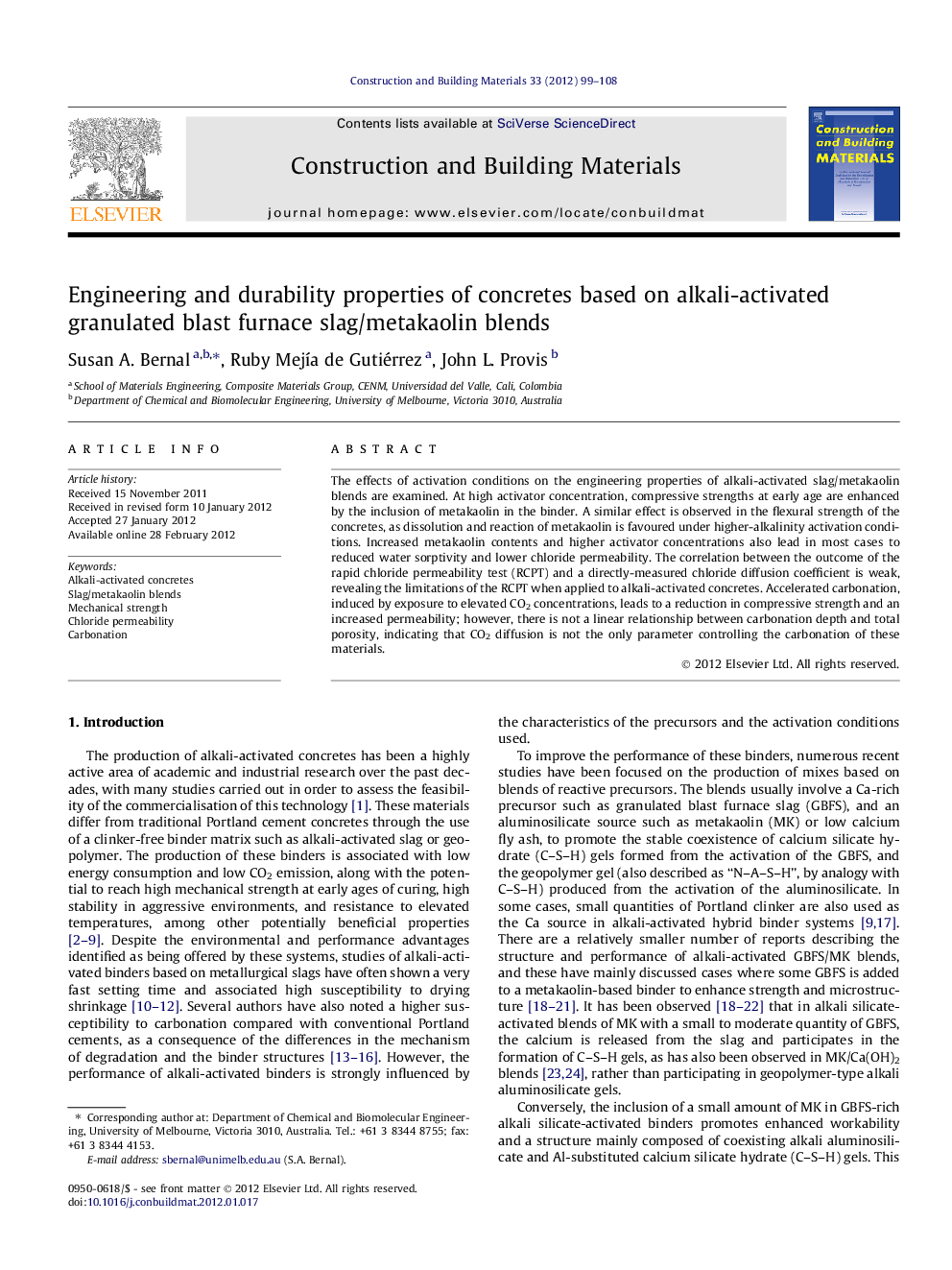| Article ID | Journal | Published Year | Pages | File Type |
|---|---|---|---|---|
| 258805 | Construction and Building Materials | 2012 | 10 Pages |
The effects of activation conditions on the engineering properties of alkali-activated slag/metakaolin blends are examined. At high activator concentration, compressive strengths at early age are enhanced by the inclusion of metakaolin in the binder. A similar effect is observed in the flexural strength of the concretes, as dissolution and reaction of metakaolin is favoured under higher-alkalinity activation conditions. Increased metakaolin contents and higher activator concentrations also lead in most cases to reduced water sorptivity and lower chloride permeability. The correlation between the outcome of the rapid chloride permeability test (RCPT) and a directly-measured chloride diffusion coefficient is weak, revealing the limitations of the RCPT when applied to alkali-activated concretes. Accelerated carbonation, induced by exposure to elevated CO2 concentrations, leads to a reduction in compressive strength and an increased permeability; however, there is not a linear relationship between carbonation depth and total porosity, indicating that CO2 diffusion is not the only parameter controlling the carbonation of these materials.
► Metakaolin addition and high activator content enhance AAS mechanical properties. ► Standard relationships used to predict flexural strength do not apply to AAS. ► Increased metakaolin and activator concentrations favour reduced water sorptivity. ► The RCPT test has significant limitations when applied to AAS concretes. ► The mechanism of AAS concrete carbonation is not solely diffusion-controlled.
